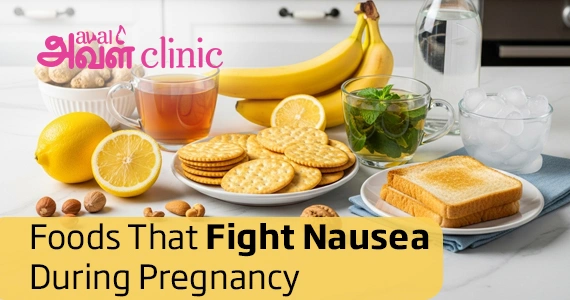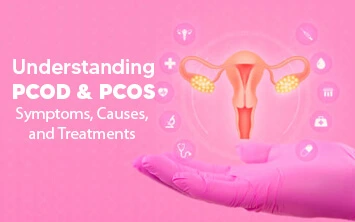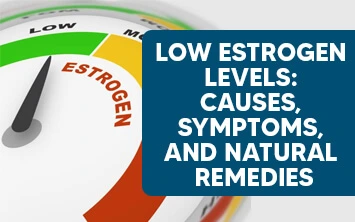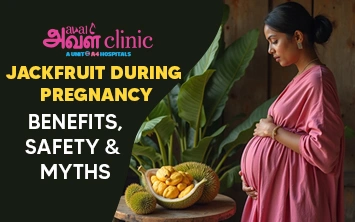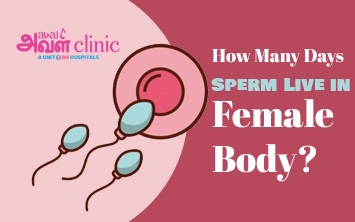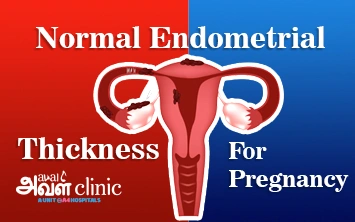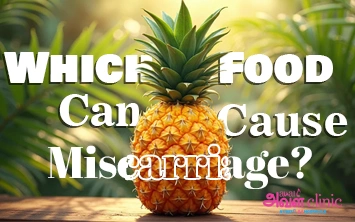Published on: September 25, 2025
Author: Admin
Nausea during pregnancy is an extremely common discomfort. About two in three women experience the symptom, especially in the first three months. Experts refer to nausea and vomiting during pregnancy as morning sickness. This symptom can range from mild to severe. In some women, it can be managed by making certain changes to their diet and lifestyle. Whereas for some, it can be severe and may lead to weight loss, electrolyte imbalances, and dehydration.
Even though the nausea and vomiting are common in the first three months, they can sometimes persist throughout the pregnancy. Furthermore, it can occur at any time of day, while you are eating or sleeping.
Therefore, understanding the effective ways to control the symptoms could be a wise decision instead of waiting until it subsides on its own.
This blog contains some recommendations for foods that fight nausea during pregnancy. So, let’s keep reading.
What Causes Nausea During Pregnancy?
The exact cause of nausea during pregnancy isn’t fully known. However, the prevailing theory claims that it could be triggered by certain physiological changes after implantation. The changes may include:
- Hormone changes - Increasing levels of hormones like human chorionic gonadotropin (hCG) and hormone GDF-15.
- GDF15 hormone - Some women become more sensitive to the protein hormone GDF-15, which is produced by the placenta.
- Genetic predisposition – Women with a family history of severe nausea, which is known as hyperemesis gravidarum (HG), have a higher recurring risk due to a shared genetic susceptibility.
- Physical triggers – Sensitivity to certain foods and smells can trigger nausea and vomiting in some pregnant women.
- Multiple pregnancies – Women pregnant with twins or more have a higher risk of developing nausea during pregnancy, especially a severe one.
Foods that Fight Nausea During Pregnancy
Some nutrient-dense foods are referred to as the powerhouse of nausea. This is because they fight the symptoms by providing essential nutrients, boosting energy, and settling the stomach.
Let’s see how to stop vomiting in pregnancy with home remedies, with the help of these superfoods.
Bland Foods
Bland foods play an important role in managing pregnancy nausea. This is because they are easy to digest, lack odours that trigger nausea and vomiting, and heartburn. Bland foods are often a part of the BRAT diet that includes bananas, rice, applesauce, and toast. The carbohydrates and calories in the food can also help with absorbing excess stomach acids, thereby reducing morning sickness.
- Crackers, Toast, and Rice
Crackers, toast, plain white rice, or dry cereal can help minimise nausea and vomiting in pregnancy. They can be a good choice to consume before bedtime or on an empty stomach. This is because they contain low fat and are easily digestible to calm your stomach. - Applesauce
Applesauce is typically made from cooked, skinless apples. They can be flavoured with some honey or cinnamon for consumption. Its soft texture can be gentle on your stomach, along with providing energy, fibre, and hydration.
Digestive Aids
Digestive aids like ginger, peppermint, lemon, and mint play a significant role during pregnancy. This is because these foods can manage digestive issues like indigestion and nausea effectively. While ginger and lemon can treat morning sickness predominantly, peppermint can help with gas and bloating. Similarly, mint is known to alleviate pregnancy nausea.
- Ginger
Ginger provides extensive benefits in treating nausea and vomiting. Sometimes, just the smell of fresh ginger can control your nauseous sensation. You can add ginger to your tea or smoothies to stimulate digestion and calm queasiness. - Peppermint
Peppermint is known for its refreshing and soothing properties. You can include this digestive aid in your tea, chew on gum, or just add it as a flavour in your foods. - Lemon
The fresh aroma of lemon is widely used to control queasiness. When it comes to pregnancy queasiness, you can drink a warm lemon water, suck on a lemon slice, or add lemon juice to your salads or poha to manage the symptom. - Mint
Mint is widely used for its cooling effect on the stomach. You can include mint in your salads, make a mint tea, or just add it to your water.
High-Protein Foods
Studies have found that high-protein foods like chicken, hard-boiled eggs, Greek yoghurt, and broth can largely help with pregnancy-related nausea. This can happen as the foods can stimulate gastric acid production in the maternal body by increasing the hormone gastrin. These high-protein foods can provide you with energy while making you feel full and satisfied.
Furthermore, major health organisations have also found that around 60-70 grams of protein per day is needed for a pregnant woman to continue a healthy pregnancy.
- Chicken
Chicken contains essential nutrients and Vitamin B6 that can help with pregnancy-related nausea. You can consider including chicken baked or boiled, rather than fried, in your diet. - Hard-boiled eggs
Hard-boiled eggs can be a great option when dealing with food aversions as it is bland in nature, simple to digest, and low in calories, while also providing protein for muscle support and energy. - Greek yogurt
Plain Greek yoghurt can help to manage nausea by improving your digestive health as it contains protein, calcium, and probiotics. You can include yoghurt in smoothies or with any fruit parfait. - Broth
Broth is a gentle, bland, and easily digestible food that can help to fight pregnancy-related nausea. This is possible as broth contains hydrating properties and electrolytes like potassium and sodium that can replenish lost minerals and fluids from vomiting.
Hydrating Options
Hydrating foods like coconut water, watermelon, and cucumbers are great options if you are looking for how to stop vomiting in pregnancy. Hydrating foods can significantly help prevent dehydration caused by vomiting. This is because these foods contain essential electrolytes and soothing properties that can be effective for pregnancy-related nausea.
- Coconut Water
The natural sweetness in the coconut water can significantly soothe the stomach, enhance digestion, and rehydrate the maternal body. - Cucumbers
The bland nature of the cucumber, along with high water content, can aid in providing hydration without the need for large drinks. You can consume raw cucumbers as a snack, add them to salads, or mix them into smoothies. - Watermelon
Watermelons play a vital role in relieving heartburn and soothing the stomach due to their hydration properties. You can eat plain slices of watermelon, or make it into juice, or puree it.
Need expert advice? Consult our doctors now!
Call Now: 80047 80048Common Drinks and Foods that Aid with Nausea During Pregnancy
The following are some of the common drinks and foods that can play a role in aiding nausea and vomiting during pregnancy.
| Juices | Fruits | Foods | Drinks |
|---|---|---|---|
| Apple juice | Apple | Plain crackers | Peppermint tea |
| Grape juice | Grapes | Ginger biscuits | Ginger tea |
| Lemonade | Watermelon | Scrambled eggs | Milk shakes |
| Watermelon juice | Orange | Chicken – baked or grilled | Herbal tea |
| Coconut water | Banana | Boiled or baked potatoes | Broth |
| Orange juice | Ripened papaya | Apple sauce / peeled apples | Mint water |
What Foods to Avoid to Control Morning Sickness?
Alike knowing which foods can help prevent morning sickness, knowing which foods to avoid to prevent morning sickness is also important.
For women wondering how to avoid vomiting during pregnancy, the following are some of the suggestions:
Greasy, Fried, and Fatty Foods
Greasy, fried, and fatty foods like butter, cheese, rich gravies, and fried fish or snacks are generally advisable to be avoided during pregnancy, especially when dealing with nausea. This is because they can worsen the symptoms by delaying the digestion process.
Heavily Spiced Foods
Adding a pinch of spices like cinnamon and cardamom is good for managing pregnancy-related nausea. Yet, heavily spiced foods like briyani and rich curries can irritate the stomach and cause heartburn.
Strong-Smelling Foods
Avoiding strong-smelling foods like onions, garlic, and certain pickles can certainly help with managing pregnancy nausea. For some women, even the smell of greasy foods or tempering can trigger the symptom. Therefore, avoiding these foods or having someone cook for you can largely help.
Caffeine
Having coffee in moderation is generally considered fine. But excessive consumption can lead to dehydration and heartburn, especially during pregnancy.
Sugary Foods and Drinks
Sugary foods and drinks have a strong association with spiking the blood sugar levels, thereby causing crashes like anxiety and anger, along with increased nausea.
Processed Foods
Processed foods like noodles, packaged chips and snacks, and sugary sodas should be avoided to control pregnancy nausea and vomiting.
Summary
Nausea and vomiting during pregnancy can be exhausting, but remember it can usually be subsided within the first trimester. And it's very rare for women to persist with the symptom throughout the pregnancy.
Understand that every woman is different. Therefore, be gentle on your body as well as your emotions. Eating bland and nutrient-dense foods can be of great help when it comes to managing the symptoms. Rest whenever you feel like resting, and eat whatever soothes your stomach with nourishment.
Above all, talk to your healthcare provider for any guidance.
If you still have any concerns, having a consultation with experts at Aval Clinics is recommended. They can guide you.
Contact us today for expert advice and personalized care:

